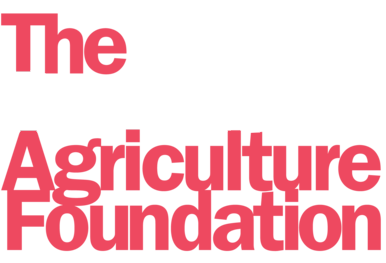
FAQ.
Understanding Mental Health in Agriculture
INTRODUCTION.
We champion the mental wellbeing of everyone in Canadian agriculture, working to cultivate a culture of well-being with and within Canadian farming communities. Mental health is a community journey — no one should walk alone.
Agriculture is an industry founded on deep rural roots, hard work, resilience, independence, and strength. These traits, as amazing as they are, can also act as barriers that stop people from speaking up and seeking help. Those in the Canadian agriculture industry are among the most vulnerable when it comes to mental health issues: stress, anxiety, depression, emotional exhaustion, loneliness and burnout are all high. Access to mental health support is difficult in rural areas, and rural residents are less likely to look for help — and prefer help that understands the unique challenges of agriculture.
By collaborating with the entire industry and those working to address the state of mental health in agriculture, we can and will make a substantial impact!
Statistics
40% of producers across Canada reported that they would feel uneasy about seeking professional help due to what people may think.* This is twice as high as the mainstream population.
58% percent of producers met the criteria for Anxiety classification.*
75% of farmers have mid to high stress levels.
Stress and other mental health problems are higher among farm women in every aspect except alcohol use.
Farmers' mental health declined between the survey periods of 2015 and 2021. It’s possible that the covid-19 pandemic had a specific impact.
*Results from the National Survey of Farmer Mental Health, conducted by Dr. Andria Jones-Bitton [et al] at the University of Guelph in 2021.
Farmers are 4 times more likely to use firearms to die by suicide than the general population (Farm Management Canada, September 2019).
With 83.9% of Canadian farm operators living in rural Canada, isolation can pose a challenge for mental and physical well-being (Kitchen, P.; Williams, A.; & Chowhan, J., 2012).
A US based, CDC study of suicide risk found that male farmers, had a suicide rate more than 50% higher than the overall suicide rate of men in other observed operations. In Canada, rural suicides are 20-30% higher than the general population.
Risk factors:
Stress in farming populations has been linked to an increase in the rate of farm work injuries, an increased risk of suicide, and negative impacts on the welfare of farm animals. Anxiety and depression may impact the ability of producers to work effectively, lowering farm productivity (Hagen et al., 2019, Research trends in farmers’ mental health: A scoping review of mental health outcomes and interventions among farming populations worldwide).
Recent research by Jones-Bitton and Hagen found that a lack of accessibility to mental health supports and services, mental health stigma in the agricultural community, and a lack of anonymity were among the main reasons that farmers do not seek the support they need.
Mental health issues are quite prevalent in agriculture and are affected by specific challenges in the agricultural industry, including:
Workload pressures and lack of time
Lack of social interaction, healthcare and recreational/social services due to rural isolation.
Financial pressures including price margins, payment of debts, employee payroll, rising input costs and other expenses.
Difference in opinions over farm management decisions or professional values associated with the farm business leading to family or business conflict.
Transition planning and the stress associated with maintaining the farm legacy.
External stressors including weather, price/markets, agricultural policy and legislation, machinery breakdowns and disease outbreaks.
Criticism of farming in the media reducing pride and public trust.
The perceived social "shame" of having mental health social stigma challenges*
According to Farm Management Canada’s, Exploring the Connection between Mental Health and Farm Management Environmental Scan, September 2019.
What can we all do to help support mental health in agriculture?
The "Healthy Minds, Healthy Farms" report revealed the following key recommendations aimed at addressing mental health challenges in the agriculture community:
Recommendation 1: Continue raising awareness around the importance of farmer mental health.
Recommendation 2: Support the improvement of mental health literacy for farmers and those supporting farmers.
Recommendation 3: Deliver business management advice, tools, and training that focus on risk management and preparedness as a means of facing uncertainty.
Recommendation 4: Advocate for farmer-specific mental health support services, like Do More Ag.
How can you support your mental well-being, and the wellbeing of others within your community?
Take part in a mental health program or workshop in your community here.
Access a free and anonymous mental health community through AgTalk with members of the agriculture industry just like you: AgTalk
Review wellness tips on tangible strategies to help support yourself and others: Wellness Tips
The Role of The Do More Agriculture Foundation:
Organizations like The Do More Agriculture Foundation (Do More Ag) directly impact and support the recommendations outlined in the "Healthy Minds, Healthy Farms" report. The Do More Agriculture Foundation recognizes the specific challenges the agriculture industry faces and works to address them through raising awareness, fostering community, and providing resources tailored to the agricultural community's needs. By breaking down the stigma, creating a sense of belonging, and bridging the gap in accessing mental health services, Do More Ag aims to ensure the well-being of farmers and agricultural communities across Canada.

